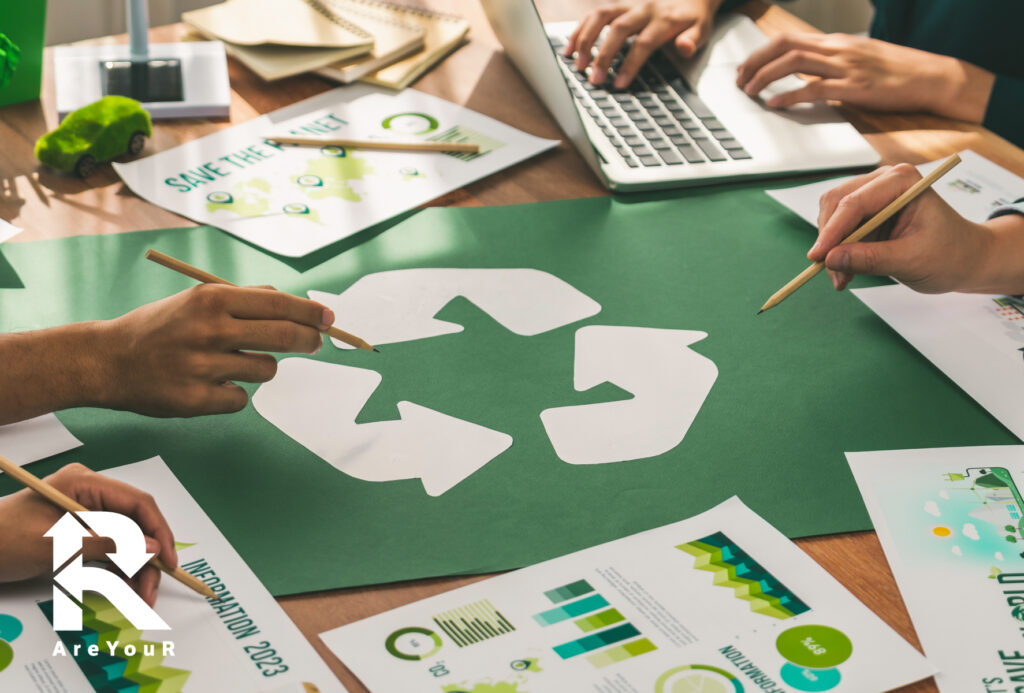Plastic is not always the problem—when managed properly, it can actually be part of the solution.
In contemporary public debate, plastic is often heavily criticized and seen as the ultimate environmental enemy. However, there is an alternative narrative that is less sensational yet far more grounded, emphasizing the importance of responsible plastic use, particularly the use of recycled plastic. In fact, when this material is thoughtfully reintegrated into production processes, it can help minimize environmental impact, drive industrial innovation, and enhance business performance.
In this article, we will explore the key role of recycled plastic as a strategic lever for competitiveness and examine its significant potential to support the sustainability goals set by the European Union and demanded by the global market.
- Innovating Through Recycling: A Strategic Choice
Incorporating certified recycled plastic into production processes is more than just an environmental initiative or a regulatory compliance measure. It is a strategic decision that offers significant, measurable competitive advantages:
- Optimized procurement costs: reduced reliance on virgin raw materials, which are subject to market volatility
- Streamlined supply chain: enhanced resilience, transparency, and localization of sources
- Product innovation: development of new product lines using regenerated materials, offering refreshed aesthetics and meaningful symbolic value
- Cutting-edge technologies: utilizing tools like optical sorting, advanced sensors, AI, blockchain, and IoT enhances the quality control and traceability of recycled materials
Numerous real-world examples demonstrate the effectiveness of this approach. Many companies in sectors such as retail, automotive, packaging, fashion, and design are successfully implementing solutions that utilize recycled plastic. These initiatives have shown excellent results in reducing environmental impact while enhancing brand perception.
“According to Plastics Europe, using recycled plastic can reduce CO₂ emissions by 30–60% compared to virgin plastic”.
- ESG and Competitiveness: Recycling as a Concrete Solution
Integrating ESG (Environmental, Social, Governance) criteria has become an essential priority for businesses. But how can these principles be translated into tangible actions? Plastic recycling provides a practical, results-driven approach with positive impacts across multiple dimensions:
- Measurable Environmental KPIs: This includes reductions in CO₂ emissions, lower water and energy consumption, and decreased waste generation
- Transparent and Reliable Reporting: Businesses can provide clear data to communicate effectively with investors, stakeholders, and regulatory authorities
- Enhanced Brand Reputation and Value: Consumers increasingly reward companies that demonstrate alignment between their vision and actions
- Competitive Edge in Public Tenders and International Bids: Many evaluation systems now include ESG parameters
Many brands are already using recycled plastics certified by programs such as EuCertPlast, which ensures high material quality and safe, traceable production processes. Embracing such standards has shifted from being a mere option to becoming a significant competitive advantage in the market.
- Looking Ahead to 2030 and Beyond: The Role of Recycling in Future Scenarios
European directives and the sustainability targets set for 2030 and 2050 clearly map out a way forward that emphasizes decarbonization, a circular economy, and climate neutrality. Within this framework, plastic recycling plays a fundamental role by:
- Reducing reliance on fossil resourcesand transforming waste into a valuable resource
- Decarbonizing industrial supply chainsthrough the integration of recycled plastics into production processes
- Aligning with the principles of sustainable finance, which increasingly favours companies that demonstrate circularity and traceability
- Addressing the expectations of citizens, investors, institutions, and international supply chains effectively
According to the Breaking the Plastic Wave report (The Pew Charitable Trusts), scaling up plastic recycling globally could prevent up to 1.2 gigatonnes of CO₂ emissions by 2050.
The adoption of mechanical recycling solutions and the use of post-consumer plastics are expected to become essential components of business plans—not only for environmental reasons but also to ensure production continuity, maintain operating licenses, and access new markets.
It is not only about making the right choice for the planet. It is equally about making the right choice for your business, your customers, and the future.
It is not only about making the right choice for the planet. It is equally about making the right choice for your business, your customers, and the future.
Companies that prioritize investment in recycled plastics, mechanical recycling technologies, and circular economy models today will find themselves tomorrow with a solid reputation, credible environmental KPIs, reliable relationships with stakeholders and partners, and a leading position within their industry.
Sustainability is not merely a cost; it is a true competitive advantage.
Are you interested in joining the Are You R project as a sponsor or partner? Contact us to explore opportunities for visibility, networking, and collaboration with a community that values recycling and believes in a tangible change.

